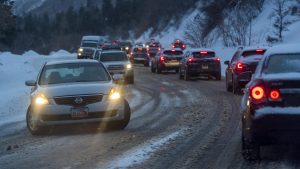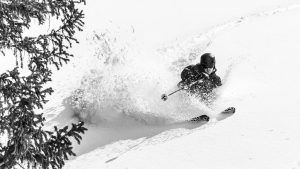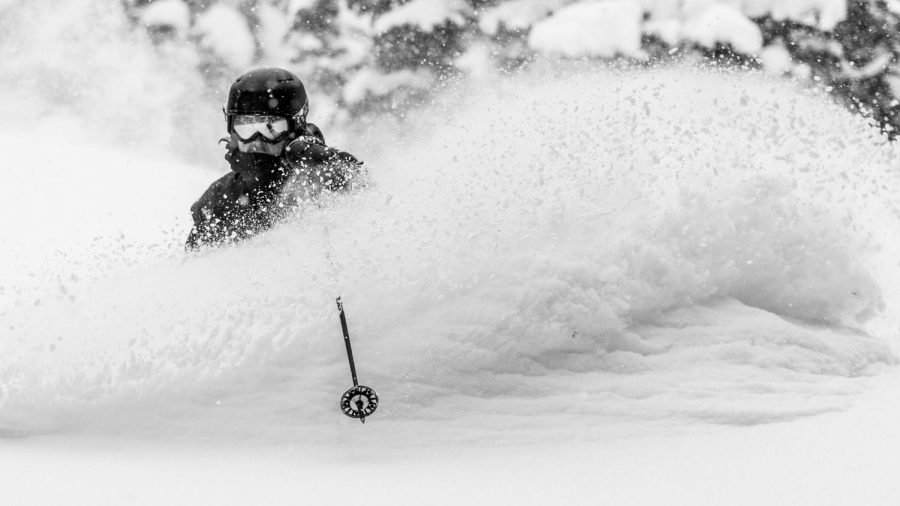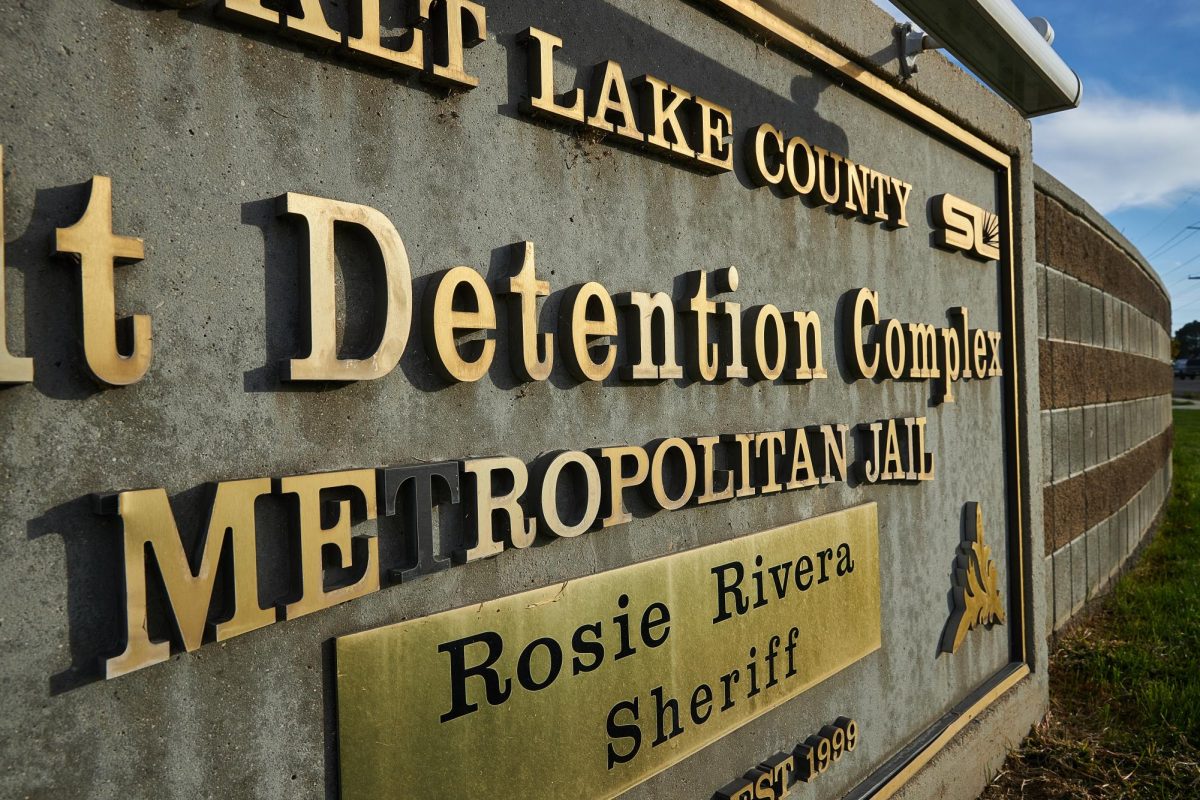Starr: If Utah Ski Resorts Don’t Collect Fees, The Snow Will Pay The Price
Skiing with Peter in Little Cottonwood Canyon outside Salt Lake City, Utah on Sunday, Feb. 10, 2019. (Photo by Kiffer Creveling)
October 29, 2019
The “greatest snow on Earth” is at risk of becoming run-of-the-mill. The 2018 ski season resulted in one of the highest skier-spending years since 2010, despite the year’s lower than average snowfall. There is no question about the popularity of Utah’s renowned powder, but responsibility of keeping it that way falls to us. We can either make the necessary individual changes and institutional fixes to preserve what we have, or we can let our canyons and powder turn into parking lots and slush.
One resort in Big Cottonwood Canyon is encouraging conservation efforts, and others should follow their lead. Solitude Mountain Resort reaches just over 10,400 feet in elevation, houses 80 runs, eight lifts and is well-suited for both beginners and those who know their way around the slopes. In an effort to reduce the canyon’s severe traffic congestion and contributions to the Salt Lake Valley’s poor air quality, Solitude Mountain Resort will begin charging for parking throughout the winter season. This initiative expands their vision of maintaining Big Cottonwood Canyon and is a bold commitment for conservation. Guests have not had to pay before this upcoming season, and there might be pushback.

However, Big Cottonwood Canyon’s other ski resort, Brighton, will not be charging for parking. Neither will Little Cottonwood’s Snowbird and Alta resorts. Jared Winkler, Brighton’s marketing director, stated that if paid parking “is something that starts working for them, I’m sure we can make it work for us.” But it is unreasonable to expect the state’s canyons, which were strained by over 5.1 million skiing visits last year, to go without fee systems. This level of traffic flow demands that fees be in place to encourage drivers to employ more sustainable means of transportation. Fees will never be the convenient option for skiers, and Solitude didn’t make this move out of ease. It might not ever even become something that “starts working for them.” Still, setting up fees is the environmentally responsible way forward, and there is no time to wait.
The parking rate isn’t uniform and is dependent upon the number of passengers in a vehicle. For example, skiers driving solo or with another person up the 15-mile-long canyon will pay $20.00 to park for the day. This rate drops as the number of passengers increases— cars housing four or more occupants will only have to pay $5.00. Requiring single-riders and two-person vehicles to pay significantly more will encourage carpooling and the use of public transportation, which in turn reduces congestion and the negative environmental impacts resulting from unsustainable driving behavior.
Solitude’s visitation will not be devastated by fees as access to ski resorts is already skewed toward those who can economically handle a fee. The cost of parking will not become the primary barrier for lower income groups to access Big and Little Cottonwood’s snow, and the people who have always been able to pay for admission at these resorts will still be able to. Full season passes and day passes at many resorts are high-priced, and the expenditures on equipment is a price tag completely unimaginable for many. Some resorts like Deer Valley will charge as much as $2,766 for a season pass this year, and Solitude is considered to be on the affordable end of the spectrum. Passes granting access to Big Cottonwood are costly, but parking fees are something the ski community can afford. In fact, they should be paying fees at minimum in order to limit the environmental degradation caused by the industry’s growth.

Even if these parking fees were to pose as a significant barrier to those who were wanting to ski and snowboard, there are plenty of options of alternative transportation to take advantage of. Solitude, as part of their new policies, is investing in a ride-sharing app, expanding lockers for those using public transportation and is extending their option of free UTA bus passes. Further, a portion of the new parking fees will be donated to an environmental organization dedicated to cleaning Utah’s air. It’s disappointing that Brighton, Snowbird and Alta will not be joining in on the efforts to better air quality and reduce traffic congestion.
It is important for people to connect with nature, and both skiing and snowboarding are good ways for some to secure the many benefits of the natural world. Fresh air, sunshine and the peace that so many of us crave, especially those who feel trapped in the urban core of Salt Lake City, is only possible to enjoy if our canyons aren’t obstructed by immense traffic congestion and environmental ruin. The benefits of the Cottonwood Canyons are diminished with improper care, development and policy, which place excessive human impact on the very spaces we seek for an escape. It’s essential for resorts to mimic Solitude’s policies at a minimum, if access to a less-troubled landscape, clean air and airy snowpack is wanted. We want to keep our snow “the greatest snow on Earth.” I’m certain “average, mismanaged snowpack” won’t make for as good of a license plate slogan.








